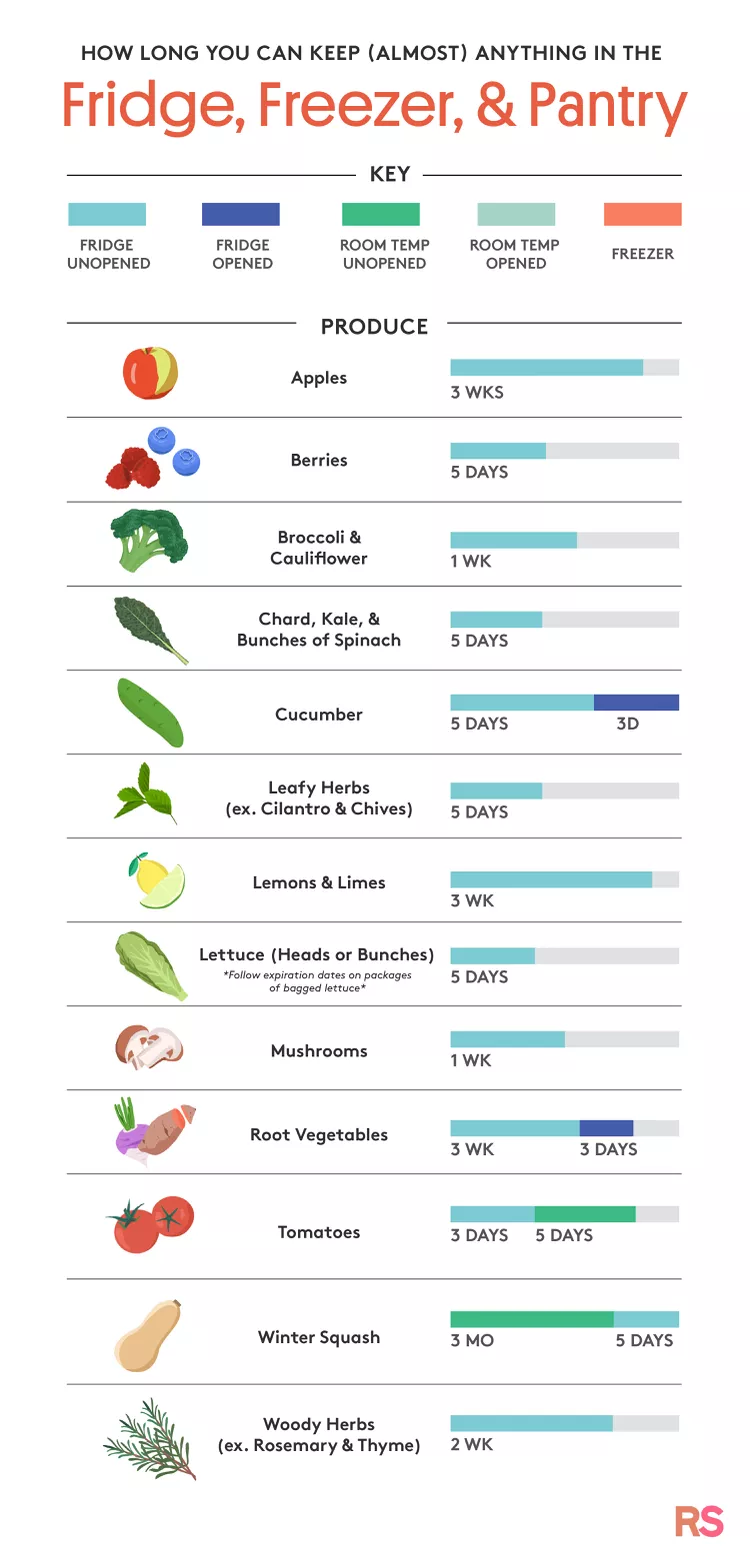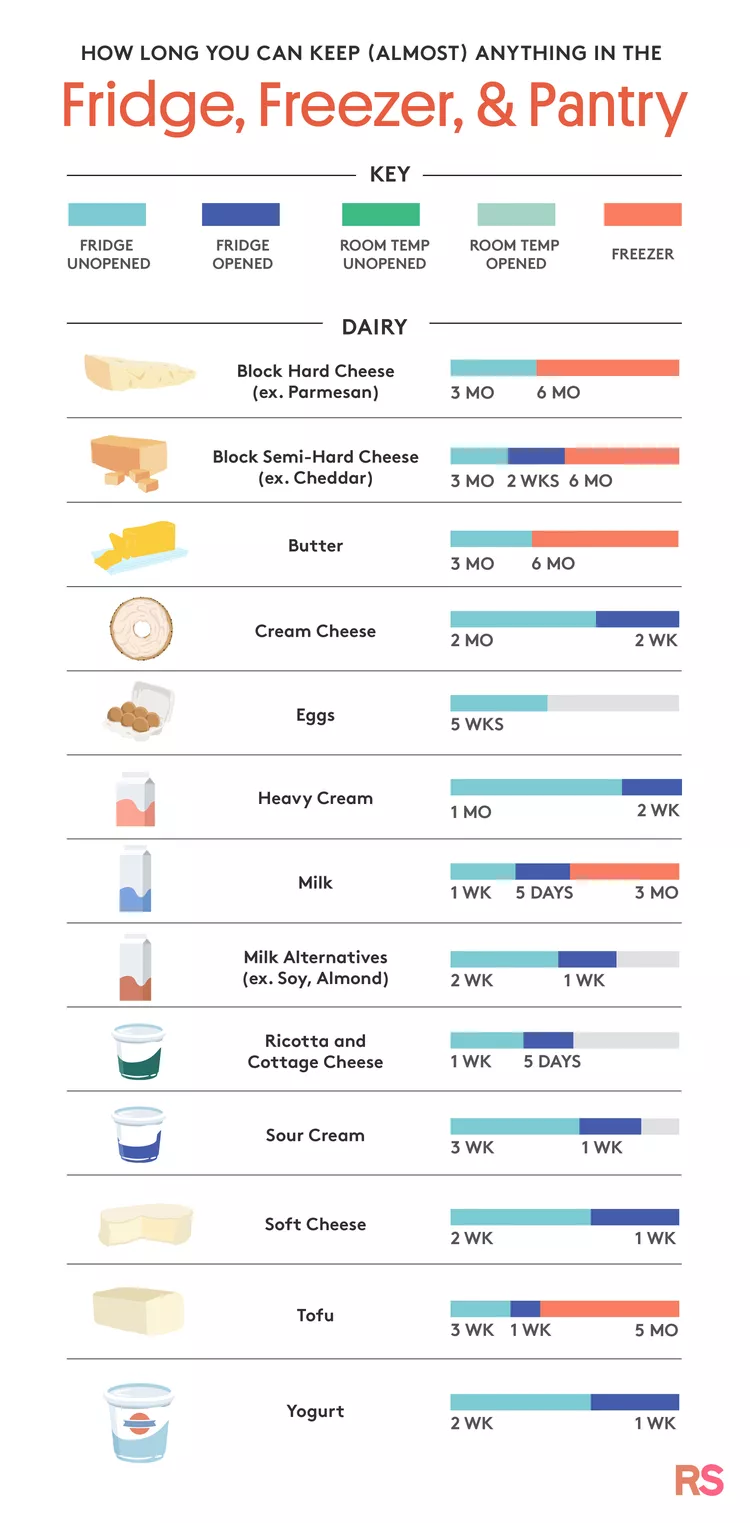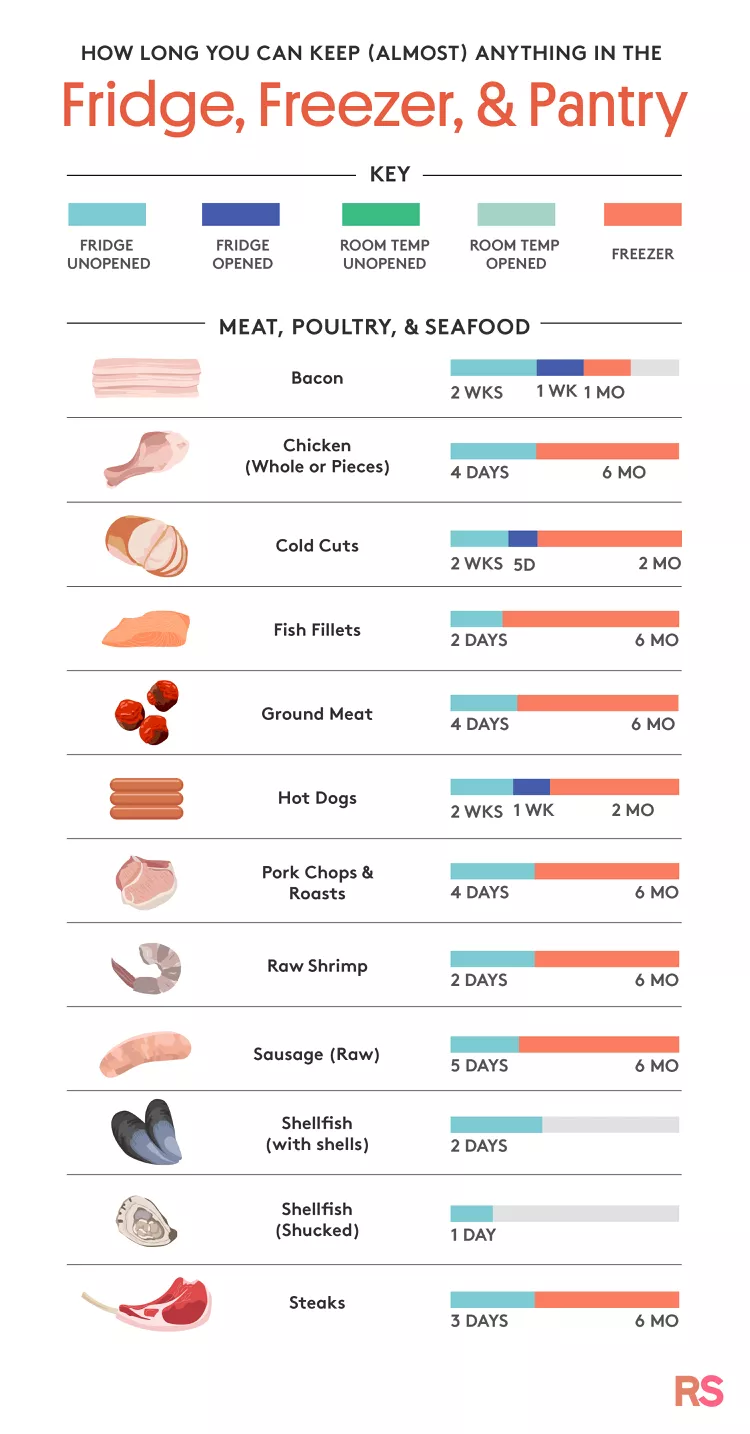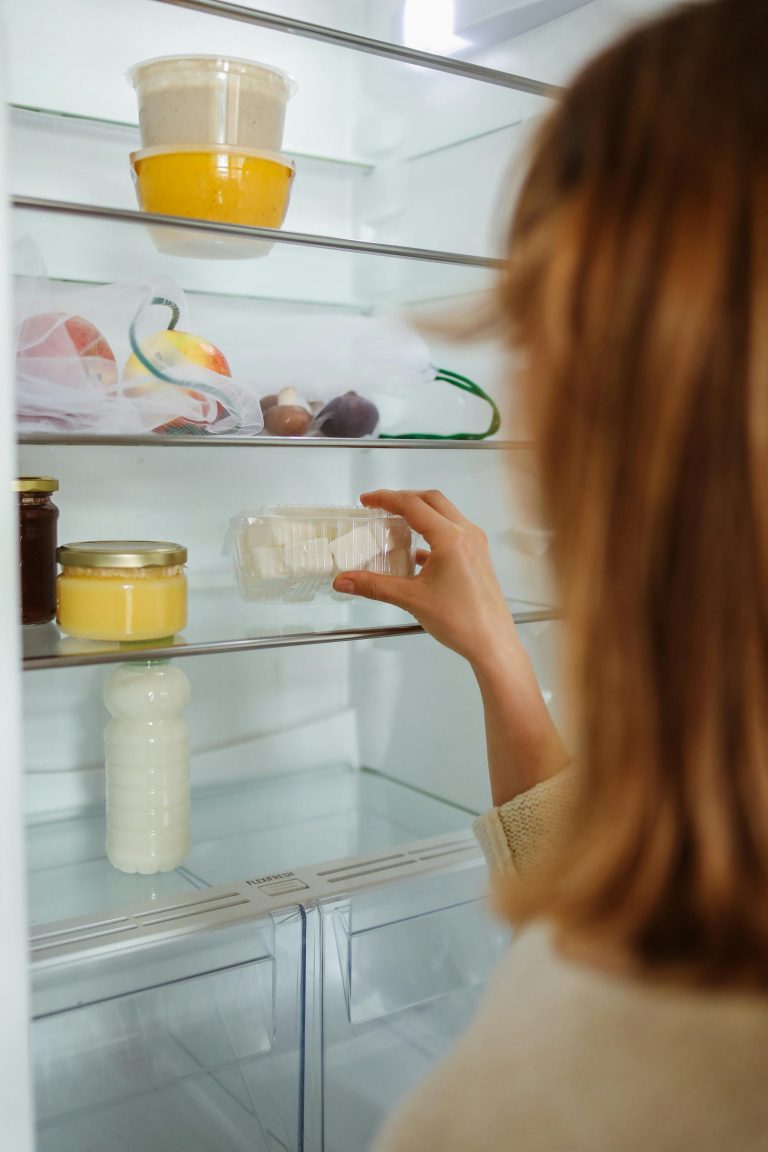The fridge is the hardest-working appliance in our kitchens. It keeps all fresh groceries cool, making them last that little bit longer. However, most of us pack the fridge full of stuff, from last night’s leftovers to our favourite spreads and fresh veggies, underestimating how long ingredients actually last once opened or stored. This leads to food waste, unnecessary grocery runs (and in this economy!), or worse, cross-contamination and foodborne illness.
But don’t start stressing (you’ve got work for that) – we’ve got you covered. We’ve created a food storage guide that will help you know exactly how long foods last, and when it’s time to use or toss items.
First up, the basics
Before we start, it’s important to note that crucial elements need to be in place before even packing your fridge with your favourites.
- Fridge temperature matters: Foods in the fridge need to be kept at 4ºC at all times, to maintain their freshness, prolong their shelf-life, and most importantly, prevent harmful microorganisms from growing. Set your fridge dial no higher or lower than number 4 or 5.
- Clean before restocking: Always clean your fridge before restocking it. This prevents further cross-contamination that might have occurred previously.
- Use-by vs best-before: The term ‘use-by’ is a guideline set by companies – it tells you the last date at which the food will be in optimal condition. However, ‘best-before’ is the last date that you can consume the food, after which it is deemed ‘off’, not fit to consume, or ‘rancid’.
- Signs of spoilage: If you see any mould, slimy substances and excessive bruising on fresh foods, or smell any funky odours, something has gone off. Remove it immediately and check foods that were in direct contact, making sure to clean and disinfect the area too.
Our complete food storage guide
Fresh produce

Fresh produce includes vegetables and fruits – that’s anything from berries to mangoes, and cucumbers to spinach.
- Delicate fruits, like berries and grapes: 5 days
- Hardy fruit, like apples and pears: 2 to 3 weeks
- Broccoli & cauliflower: 1 week
- Leafy greens: 5 days
- Cucumber: 5 days
- Mushrooms: 1 week
- Root vegetables: 3 weeks
- Tomatoes: 3 days
- Winter squash: 2 to 3 months
- Herbs: Delicate herbs last 5 to 10 days, and woody herbs last 2 weeks
Dairy & alternatives

Dairy includes your usuals – eggs, butter, yoghurt, cheeses and cream. Dairy alternatives include plant-based milks, yoghurts and cheeses.
- Eggs: 5 weeks (whole); 2 to 3 days (opened); 3 to 4 days (cooked)
- Milk: 5 days to 1 week
- Cream: 2 to 3 weeks
- Dairy spreads, like cottage cheese and ricotta: 5 days to 1 week
- Soft cheeses: 1 to 2 weeks
- Hard cheeses: 3 weeks to 2 months
- Tofu and other soy products: 1 to 3 weeks
- Yoghurt and other similar products: 1 to 2 weeks
- Plant-based milks: 1 to 2 weeks
- Other dairy-alternative products: 2 to 4 weeks
Meat, poultry and seafood

All animal proteins have varying shelf lives, due to many aspects – namely, whether they’re raw, cooked, smoked, or have been processed.
- Bacon: 1 to 2 weeks
- Cold meats: 5 days to 2 weeks
- Hot dogs and other similar products: 1 to 2 weeks
- Raw chicken: 4 days
- Ground meat: 4 days
- Raw beef: 3 days
- Raw pork: 4 days
- Raw fish: 2 days
- Raw seafood with shell: 2 days
- Raw seafood without shell: 1 day
Condiments & jarred items
It’s important to check the dates for each condiment and jarred item, as each will differ due to storage, being opened, and batch dates. The golden rule of thumb is to store most opened condiments and jarred items in the fridge (unless otherwise specified on the packaging).
- Sauces, like mayonnaise and ketchup: 6 months to 1 year
- Dips and spreads, like pesto and hummus: 1 to 3 months
- Pickled and fermented products, like pickles and kimchi: 1 to 3 months
- Jams and marmalades: 3 to 6 months
- Salad dressings: 1 to 2 months
- Nut butters: 1 month
Leftovers and cooked meals
Whether it’s leftovers you made or took home from your favourite café, or cooked meals you prepared for the week ahead, any cooked foods don’t last forever in the fridge. A good rule of thumb to keep to is keeping and eating cooked foods within 3 to 4 days, and tossing any that have sat in the fridge longer than that (yes, that includes day 5). Ensure you store cooked foods in labelled and dated containers that have sufficiently cooled.
Also See: The 7 most common fridge mistakes you’re making (and how to fix them)
The 7 Most Common Fridge Mistakes You’re Making (and how to fix them)

